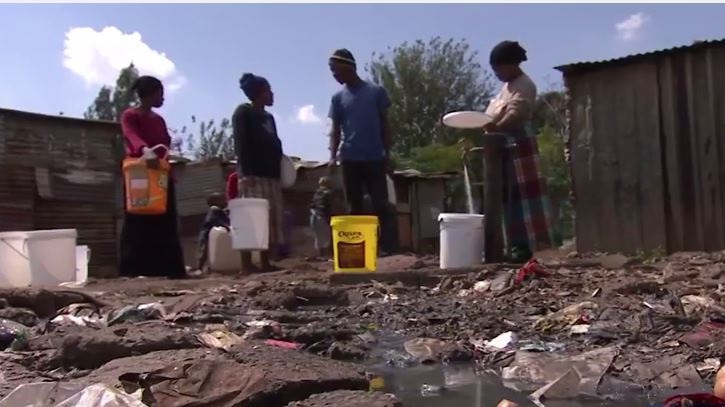
The South African economy is on the wrong economic trajectory – with a disastrous growth model, “a recipe for collapse”.
“As we are now at junk status, we can only improve. So maybe it is time for experimentation ... It is necessary for South Africa to have a conversation about real economic transformation because of rampant inequality and the growing discontent we see every single day.”
These were the views of Professor Lorenzo Fioramonti, associate professor of political science and Jean Monnet chair in regional integration and governance studies at the University of Pretoria, who spoke at a recent forum at the Gordon Institute of Business Science.
“Everybody believes that growth is a good thing, and simply associates it with a better life. But we must distinguish between good growth and bad growth,” Fioramonti said.
His book Wellbeing Economy discusses how breaking free from the growth preoccupation can build a better society that puts the wellbeing of all at its centre.
The traditional notion of GDP and growth, that the size of the economy is a function of how much is consumed “is simply short sighted,” Fioramonti said. A wellbeing economy has to be adaptive, integrative and empowering, and focus on people and ecosystems.
“The wellbeing economy is about putting people and nature first. And realising that without these two, there is no future.”
Towards a wellbeing economy
Fioramonti said the wellbeing of a society is a result of two main drivers, namely strong ecosystems and social capital. An economy that is successful is one that prioritises natural and social systems and builds development on that.
“We have done exactly the opposite by adopting a misconceived and myopic approach to economic growth. We have sold out our natural systems, and we have humiliated and oppressed a lot of our people.”
While we may have sustainable development goals, there is a clear disconnect between our goals and the measurements of success.
“When Mother Nature gets upset, it destroys our salaries. We better start to understand that the best economic decision is to maintain and preserve the ecosystems that make our economies possible.”
Fioramonti said that true growth occurred when the results of production are worth more than the natural resources initially consumed. This means our policy makers should be more careful; and companies should be expected to do total cost accounting.
Structural faults in the economy
The South African economy was on the wrong economic trajectory, Fioramonti argued.
“Our growth model is disastrous, it is a recipe for collapse. As we are now at junk status, we can only improve. So maybe is time for experimentation.”
It is necessary for South Africa to have a conversation about real economic transformation because of rampant inequality and the growing discontent we see every single day.
“It is not normal that we face these types of challenges,” Fioramonti said.
“We have a moral duty to take a step back and realise these things shouldn’t happen. We shouldn’t have so many people in poverty, so much inequality, we shouldn’t have this huge divide.”
The country’s immense unemployment, which Fioramonti put at over 50% in the wider sense, has resulted in “a separate economy where only those inside can do things, while those outside are invisible, and do not matter, do not exist.”
The future of economic development would depend on decentralised economic empowerment – moving away from a system dominated by a few big companies towards a system of production led by many small businesses. South Africa needed to invest in labour intensive sectors of the economy within the manufacturing and agricultural sectors.
“The future of the South African economy hinges on the ability to give small businesses a level playing field,” he added.
Fioramonti cited the example of Eskom as a large, dominant business that was following an obsolete economic model, thereby limiting the country’s potential.
The system was designed to ensure the country remained dependent on Eskom, instead of empowering small businesses and households to become the driver of a new economic era through independent power production. This was “keeping a defunct economic model on life support through subsidies and regulations.”
Smart grids or micro grids, would allow individuals to produce and share energy, “bringing power to everyone, including all the rural areas is about simple technology,” he explained.
The role of the state in a wellbeing economy is to only do what the market and society cannot do for themselves, and create the enabling conditions for the co-production of services whenever possible.
“There is no reason for the state to provide services society can provide itself, much more efficiently, if it is empowered,” Fioramonti said.
“There are so many thing we could do to turn things around and change this country from a basket case of wrong policies into a pioneer and a leader with the right ones.”
A post-GDP world
Fioramonti concluded that the standardisation of economic development models was problematic. “We have to regain control of our development objectives. We have reached a level of maturity that should allow each country to develop according to its own principles. The well being economy allows and empowers people to choose their own ways.”
“The world needs an alliance of countries to say we are done with this model and want to pursue another one, and do it in collaboration. It is a problem that requires action at the global level.
“I hope that at some point South Africa may also join this alliance. We have to decide what kind of society we want, and we have to start siding with those who want real change.”
• City Press is a media partner of the Gibs forums.




 Publications
Publications
 Partners
Partners








